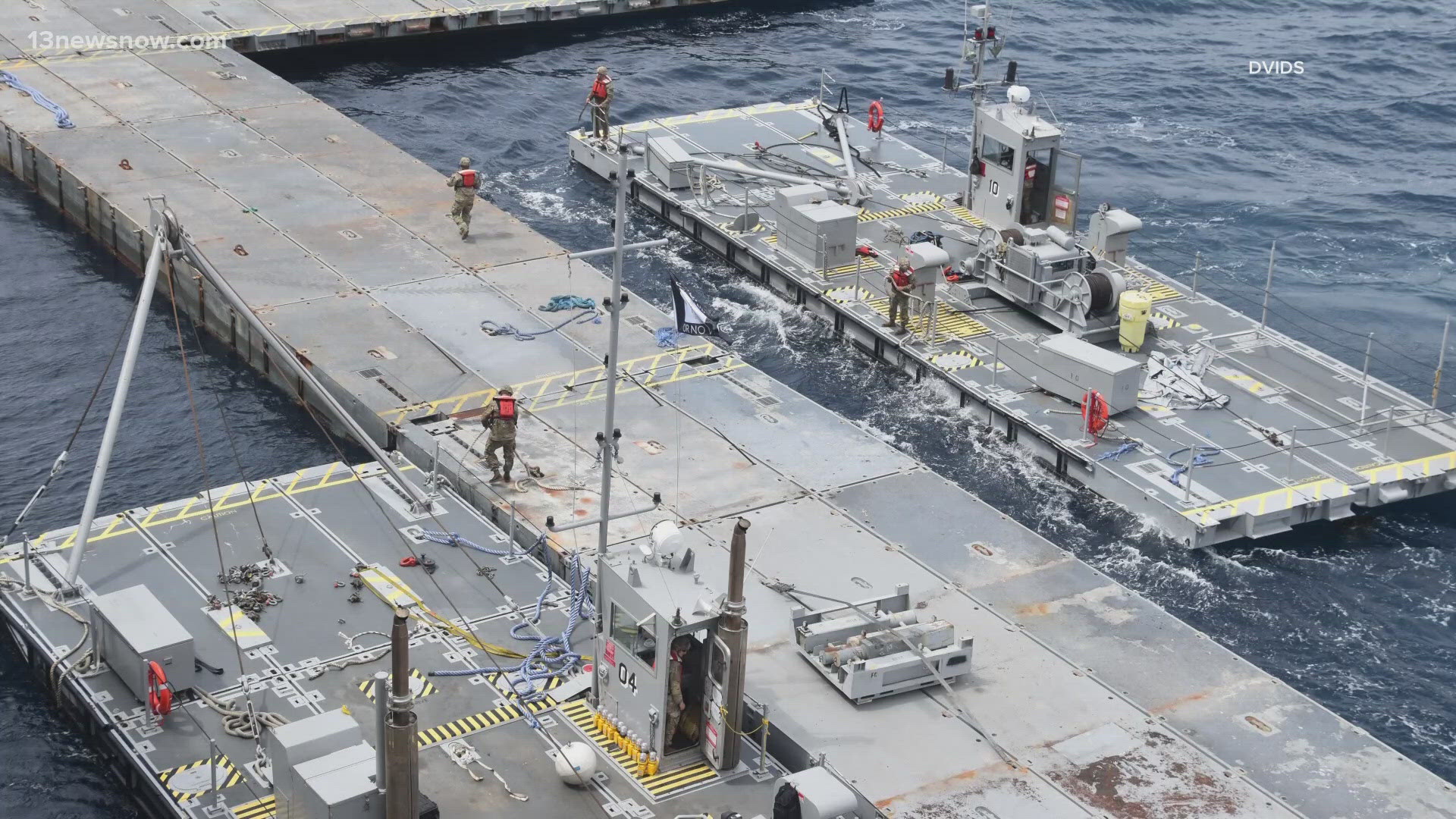NEWPORT NEWS, Va. — When the Pentagon announced on July 18 the conclusion of the Joint Logistics Over-the-Shore system (JLOTS) humanitarian aid pier mission in Gaza, Department of Defense (DOD) Deputy Press Secretary Sabrina Singh certainly made it sound as if the effort had been a total success.
"The temporary pier successfully delivered nearly 20 million pounds of aid, which is the highest volume of humanitarian assistance the U.S. military has ever delivered into the Middle East," she said at the time.
But a new report points out that a "wild" combination of turbulent weather, security threats, and sweeping personnel restrictions "impaired" the mission.
The Inspector General for the U.S. Agency for International Development (USAID) report said "Multiple USAID staff expressed concerns that the focus on using JLOTS would detract from the Agency's advocacy for opening land crossings."
The report goes on to say: "Due to structural damage caused by rough weather and high seas, the pier operated for only 20 days."
Additionally, the report notes that USAID "fell short of its goal of supplying aid to 500,000 or more Palestinians each month for three months and instead delivered enough aid to feed 450,000 for one month."
Besides this USAID report, the DOD Office of Inspector General announced last month that it would investigate the JLOTS capability used to build the pier.
Soldiers from the Fort Eustis-based 7th Transportation Brigade answered the call.
RELATED: Spouses of troops sent to build Gaza humanitarian relief pier are proud and anxious for their return
The Pentagon said about 1,000 U.S. soldiers and sailors were instrumental in delivering and building the 1,800-fout-long causeway.

